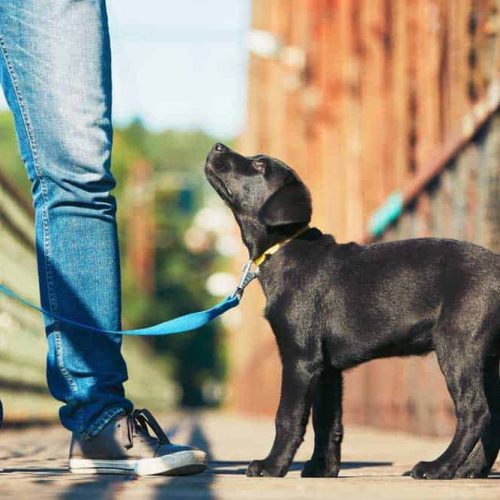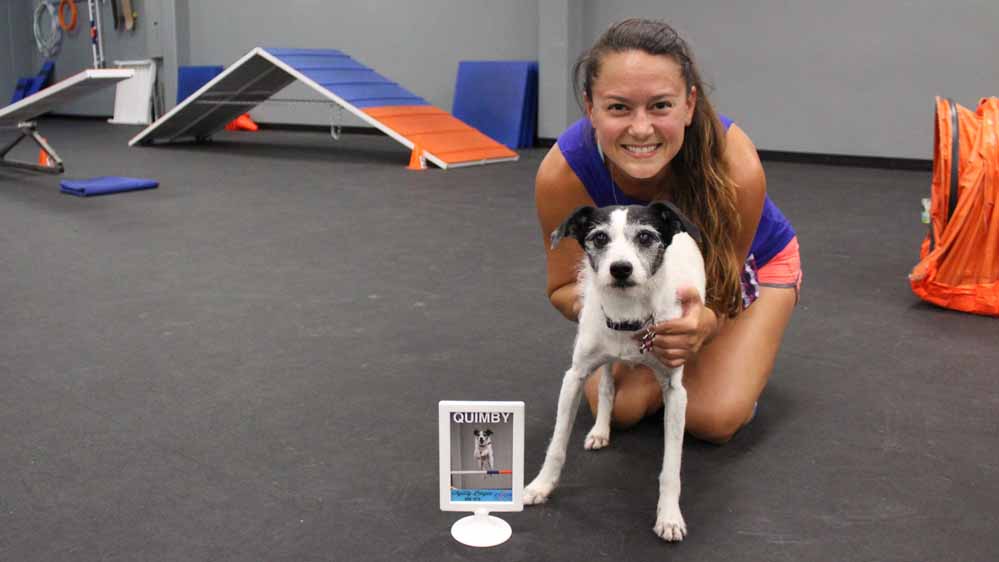Efficient Dog Training For Dogs: Tips for a Well-Behaved Buddy
Efficient Dog Training For Dogs: Tips for a Well-Behaved Buddy
Blog Article
Leading Canine Training Techniques for each Stage of Your Pet Dog's Life
Reliable canine training is important at every stage of a dog's life, as each stage presents one-of-a-kind difficulties and possibilities for growth. It is important to identify that training needs to progress alongside a canine's development, making certain that techniques remain appropriate and effective.
Pup Training Fundamentals
Puppy training essentials prepared for a well-behaved grown-up pet dog and entail numerous key elements that should not be ignored. The first stage of training concentrates on establishing a strong bond in between the pup and its proprietor, which is important for reliable interaction. Socialization is extremely important; revealing pups to various environments, people, and other pets helps them create self-confidence and versatility, lowering the chance of behavior issues later on in life.
Basic commands, such as rest, remain, and come, form the structure of obedience training. Making use of positive reinforcement techniques, such as deals with and praise, encourages preferred behaviors and promotes a positive learning experience. Uniformity in commands and training sessions is vital, as young puppies thrive on regular and structure.
Furthermore, house training is an important facet of young puppy training. Establishing a routine timetable for shower room breaks and making use of assigned locations can help lessen accidents and promote excellent practices. On the whole, an all-around strategy to puppy training, incorporating obedience, home, and socializing training, establishes the stage for a well-adjusted adult pet dog, ensuring a harmonious partnership in between the animal and its proprietor.
Adolescent Actions Administration
As pups mature right into teens, their habits can alter dramatically, commonly providing brand-new difficulties for proprietors. This developing stage, generally happening in between 6 months and 2 years, is noted by enhanced power degrees, curiosity, and a blossoming sense of freedom. Recognizing these adjustments is crucial for effective behavior management.
Adolescents might show defiant propensities, such as ignoring commands they formerly understood or involving in devastating actions. Uniformity in training continues to be critical; reinforcing discovered actions through favorable support can assist neutralize these difficulties. Short, engaging training sessions are necessary to preserve their rate of interest and emphasis.

In addition, establishing a structured routine can dramatically enhance an adolescent pet dog's complacency. Normal exercise is essential to carry their power favorably, reducing the likelihood of undesirable behaviors. By employing these techniques, owners can successfully navigate the complexities of adolescent behavior, fostering a well-adjusted, pleased canine buddy.
Adult Canine Obedience Strategies

Favorable reinforcement stays a vital technique; fulfilling etiquette with deals with, praise, or playtime urges conformity. Consistency is important; the same commands and benefits need to be utilized by all household participants to avoid complication.
Including training into everyday regimens can additionally work. For instance, technique commands throughout walks or dish times, permitting training to mix perfectly into daily life. Participating in organized tasks, like agility programs or obedience courses, can additionally boost a pet's abilities while supplying useful socializing chances.
It is very important to identify that grown-up canines may also display stubbornness or complacency. Adjusting training techniques to maintain their interest, such as varying rewards or presenting brand-new commands, can aid receive inspiration. On the whole, a recurring dedication to obedience training will promote a well-behaved and balanced grown-up canine.
Senior Pet Adjustment Methods
Identifying the special requirements of senior canines is vital for guaranteeing their convenience and wellness. As canines age, they may experience a Read Full Report decrease in flexibility, vision, and cognitive feature, requiring tailored adjustment methods.
First, think about modifying the living environment. Make certain that the home is secure and obtainable; remove barriers and give non-slip surface areas to avoid falls. In addition, consider utilizing actions or ramps to help them access their favorite rooms.
Secondly, workout should be adapted to make up decreased stamina and joint wellness (Dog Training For Dogs). Take part in much shorter, more regular strolls, and integrate mild activities like swimming, which can be valuable for arthritic joints
Additionally, mental excitement remains critical. Use straightforward challenge playthings or participate in scent work to maintain their minds sharp, while preventing overwhelming tasks that may discourage them.
Finally, regular veterinary examinations are important to keep track of wellness adjustments and readjust treatment routines appropriately. By applying these adaptation approaches, you can improve the lifestyle for your senior pet dog, ensuring they age gracefully and conveniently.
Lifelong Learning and Enrichment
While canines of every ages take advantage of finding out and mental stimulation, lifelong enrichment is specifically important for maintaining cognitive health and psychological health in both elderly and more youthful pet dogs. Engaging activities not only enhance a dog's lifestyle yet additionally enhance the bond in between the pet and its proprietor.
Enrichment can take different forms, including interactive playthings, problem feeders, and fragrance work, which stimulate a pet's detects and motivate problem-solving. Regular training sessions, including new commands or tricks, maintains their minds sharp and advertises a sense of success. Socializing with other dogs and individuals is similarly vital, as it aids stop behavioral concerns and promotes adaptability.
Furthermore, including physical workout into a pet's routine is important for overall wellness. Activities like click reference dexterity training, fetch, or long strolls supply both mental and physical stimulation, ensuring pets stay happy and involved.
Lastly, take into consideration varying the setting by introducing brand-new locations for playdates or walks. This adjustment can reignite a pet dog's curiosity and interest for expedition. Lifelong learning and enrichment not just add to a fulfilling life yet likewise advertise an unified partnership with your canine buddy.
Conclusion
Efficient pet training strategies evolve throughout a dog's life, attending to the one-of-a-kind demands home of each developing phase. Stressing normal psychological excitement, socializing, and physical exercise promotes a balanced and satisfying life for canines.
Efficient canine training is necessary at every phase of a pet dog's life, as each phase provides special difficulties and chances for development.Puppy training fundamentals lay the groundwork for a well-behaved grown-up pet dog and include a number of essential components that should not be overlooked. On the whole, a well-rounded strategy to puppy training, including socialization, house, and obedience training, establishes the stage for a well-adjusted grown-up pet dog, making sure a harmonious relationship in between the animal and its owner.
Several pet dog proprietors might discover that adult pets, while normally more secure in habits than their teenage counterparts, still require regular training to maintain obedience and excellent manners.Efficient dog training methods progress throughout a dog's life, resolving the distinct needs of each developmental phase.
Report this page